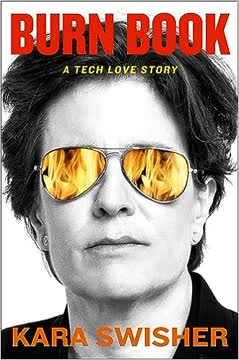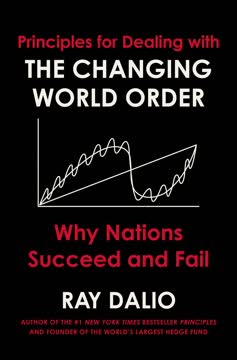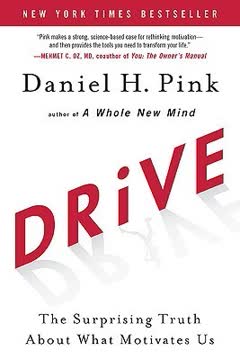Key Takeaways
1. The future is inherently unpredictable, but we can prepare for it
Ineradicable uncertainty remains inherent to human life; Hannah Arendt called it the defining characteristic of the future.
Embracing uncertainty is key. While we cannot predict the future with certainty, we can prepare for it. The world has become increasingly complex due to globalization and pervasive communications, making linear predictions less reliable. However, this complexity also offers opportunities for innovation and adaptation.
Strategies for preparation:
- Develop a tolerance for ambiguity
- Cultivate diverse perspectives and collaborations
- Focus on building resilience rather than seeking perfect predictions
- Remain open to new information and be willing to change course
- Invest in skills that enhance adaptability and creativity
2. Forecasting often fails due to complexity and human biases
All of our models for knowing the future let us down. It isn't an argument for apathy or resignation.
Limitations of forecasting. Traditional forecasting methods often fall short due to the inherent complexity of systems and human cognitive biases. Economic models, historical analogies, and personality profiling all have significant flaws when used to predict future outcomes.
Reasons for forecasting failures:
- Incomplete data and oversimplified models
- Ideological biases and self-interest of forecasters
- Overconfidence in patterns and historical repetition
- Failure to account for unexpected events or "black swans"
- Difficulty in quantifying human behavior and social dynamics
Instead of relying solely on forecasts, we should use them as tools for exploring possibilities and stimulating creative thinking about the future.
3. Experimentation is crucial for navigating uncertainty
Experiments are what you do when you don't know what you can do; they're ideal for complex environments because they yield clues about the systems we inhabit.
Learning through action. Experimentation allows us to explore unknown territories and gather valuable information about complex systems. By conducting small-scale trials and learning from both successes and failures, we can adapt more effectively to changing circumstances.
Key aspects of effective experimentation:
- Start with clear objectives but remain open to unexpected outcomes
- Create a culture that embraces failure as a learning opportunity
- Iterate quickly and adjust based on feedback
- Collaborate across disciplines and organizational boundaries
- Scale successful experiments gradually while monitoring for unintended consequences
Examples like Rebecca Hosking's plastic bag ban in Modbury and Jos de Blok's Buurtzorg healthcare model demonstrate how small experiments can lead to significant positive changes.
4. Scenario planning helps organizations explore possible futures
Scenarios bridge inside and out, immediate and future.
Exploring multiple futures. Scenario planning is a powerful tool for organizations to prepare for various possible futures. By developing and analyzing multiple plausible scenarios, companies and institutions can identify potential risks and opportunities, and develop more robust strategies.
Key elements of effective scenario planning:
- Develop diverse, plausible scenarios based on rigorous research
- Involve a wide range of stakeholders in the planning process
- Focus on identifying critical uncertainties and driving forces
- Use scenarios to challenge existing assumptions and mental models
- Regularly update and revise scenarios as new information becomes available
Notable examples include Shell's use of scenario planning to navigate oil price shocks and South Africa's Mont Fleur scenarios during the transition from apartheid.
5. Artists offer valuable insights on embracing ambiguity and change
Artists think for themselves. In doing so, they claim the right to influence the future of their own lives, of their work, and of anyone who witnesses it.
Creative mindset for uncertainty. Artists provide a model for how to thrive in uncertain environments. Their approach to work and life offers valuable lessons for individuals and organizations facing unpredictable futures.
Key artistic approaches to uncertainty:
- Embrace ambiguity as a source of creativity
- Remain open to new experiences and perspectives
- Cultivate keen observation and attention to detail
- Allow for periods of reflection and incubation of ideas
- Adapt and evolve in response to changing circumstances
- Pursue meaningful work without guaranteed outcomes
By adopting these approaches, we can develop greater resilience and adaptability in the face of an uncertain future.
6. Cathedral projects demonstrate long-term thinking and adaptation
Cathedral projects start big and grow in the face of uncertainty and complexity. Their huge ambition inspires people to stay humble and to measure up to the guiding principles that inspire them.
Enduring vision and flexibility. Cathedral projects, such as CERN and the Sagrada Familia, exemplify how long-term thinking and adaptability can coexist. These projects demonstrate the power of guiding principles to inspire and unite people over generations, while remaining flexible enough to incorporate new technologies and ideas.
Characteristics of successful cathedral projects:
- Clear, inspiring guiding principles that transcend immediate goals
- Openness to new ideas and technologies
- Collaboration across disciplines and generations
- Ability to adapt to changing circumstances while maintaining core vision
- Focus on creating enduring value rather than short-term gains
These projects offer valuable lessons for organizations and societies seeking to address complex, long-term challenges such as climate change or space exploration.
7. Existential crises reveal the importance of human connections
What gets people through crises and into the future is each other.
Resilience through relationships. Existential crises, whether personal or societal, highlight the crucial role of human connections in navigating uncertainty and adversity. During times of extreme challenge, people often find strength and meaning through their relationships with others.
Key aspects of human connections in crises:
- Emotional support and shared experiences
- Collective problem-solving and resource-sharing
- Motivation to persevere for the sake of others
- Creation of new social structures and support systems
- Shared sense of purpose and meaning
Examples such as the AIDS crisis and corporate turnarounds demonstrate how human connections can provide the resilience and creativity needed to overcome seemingly insurmountable challenges.
8. Preparedness requires collective action and diverse perspectives
Making the future is a collective activity because no one person can see enough.
Collaborative future-making. Preparing for an uncertain future demands collective action and the inclusion of diverse perspectives. No single individual or organization can adequately address the complex challenges we face.
Strategies for collective preparedness:
- Foster collaboration across sectors, disciplines, and cultures
- Engage in participatory decision-making processes
- Develop inclusive institutions and governance structures
- Invest in education and skill-building for all members of society
- Create platforms for sharing knowledge and best practices
Initiatives like the Coalition for Epidemic Preparedness Innovation (CEPI) and Wales' Future Generations Act demonstrate how collective action can enhance our ability to prepare for and shape the future.
9. Death is a natural part of life that can provide meaning and purpose
Death isn't an error for doctors to correct, or a bug for software engineers to fix: it is a natural process that can be honoured and dignified.
Embracing mortality. Accepting death as a natural part of life can lead to a more meaningful and purposeful existence. Rather than viewing death as a problem to be solved, we can use our awareness of mortality to focus on what truly matters and create lasting value.
Benefits of accepting mortality:
- Increased appreciation for the present moment
- Greater focus on relationships and legacy
- Motivation to pursue meaningful goals and experiences
- Reduced fear and anxiety about the future
- Enhanced ability to cope with loss and change
Hospice workers and those facing terminal illnesses often report finding deeper meaning and connection in their lives by confronting mortality directly.
10. Technology should augment, not replace, human capabilities
We become digital slaves only if we think of ourselves as no more than data.
Human-centered technology. While technological advancements offer immense potential, they should be designed to enhance rather than replace human capabilities. We must remain vigilant against the tendency to outsource our thinking and decision-making to machines.
Principles for human-centered technology:
- Prioritize technologies that augment human creativity and problem-solving
- Design systems that promote human agency and autonomy
- Maintain critical thinking and emotional intelligence skills
- Foster diverse and inclusive technological development
- Regularly assess the ethical implications of new technologies
By maintaining a balance between technological progress and human values, we can create a future that leverages the best of both human and machine capabilities.
Last updated:
Review Summary
Uncharted received mixed reviews, with praise for its engaging writing style and thought-provoking ideas about navigating uncertainty. Readers appreciated Heffernan's insights on embracing complexity, human ingenuity, and the limitations of prediction. However, some found the book's structure disjointed and lacking cohesion. Critics noted that while the book offers interesting stories and perspectives, it fails to provide concrete strategies for navigating the future. Overall, readers found value in the book's exploration of uncertainty and its challenge to conventional thinking about forecasting and planning.
Similar Books










Download PDF
Download EPUB
.epub digital book format is ideal for reading ebooks on phones, tablets, and e-readers.






